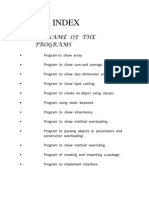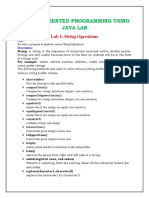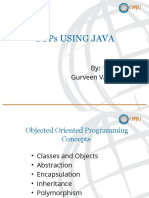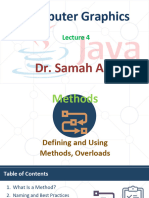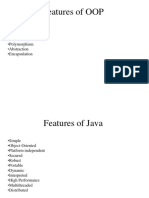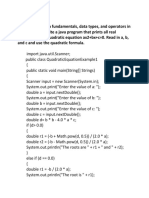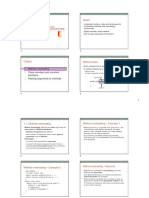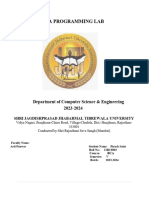0% found this document useful (0 votes)
25 views4 pages12 MethodOverloading
The document provides an overview of method overloading in Java, explaining that it allows multiple methods with the same name but different argument lists. Several examples illustrate how to implement method overloading with different data types and argument counts. The document emphasizes that the return type may vary, but the method names must remain consistent.
Uploaded by
k.narendhar16Copyright
© © All Rights Reserved
We take content rights seriously. If you suspect this is your content, claim it here.
Available Formats
Download as PDF, TXT or read online on Scribd
0% found this document useful (0 votes)
25 views4 pages12 MethodOverloading
The document provides an overview of method overloading in Java, explaining that it allows multiple methods with the same name but different argument lists. Several examples illustrate how to implement method overloading with different data types and argument counts. The document emphasizes that the return type may vary, but the method names must remain consistent.
Uploaded by
k.narendhar16Copyright
© © All Rights Reserved
We take content rights seriously. If you suspect this is your content, claim it here.
Available Formats
Download as PDF, TXT or read online on Scribd
/ 4









